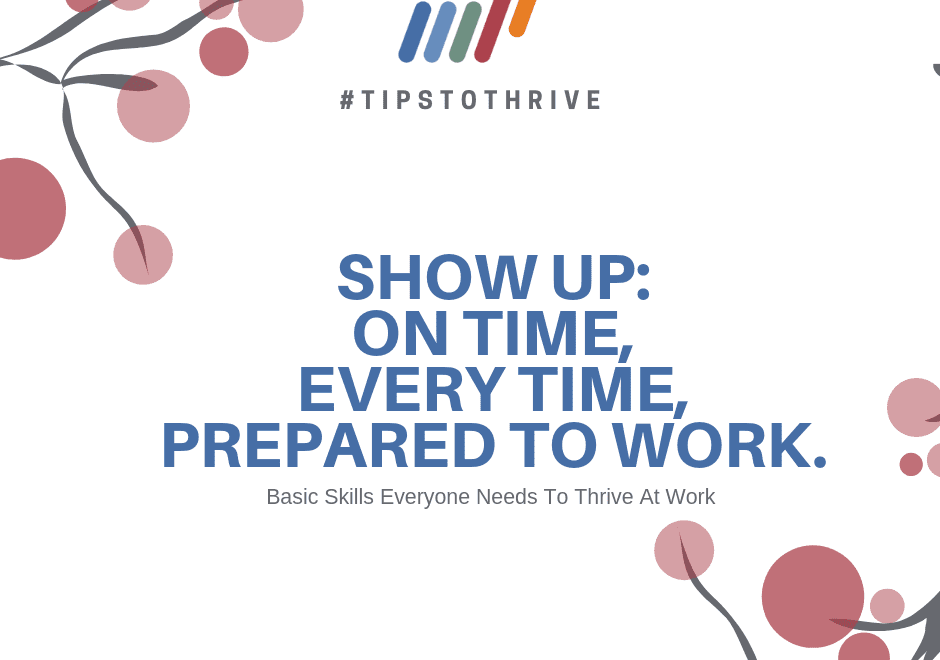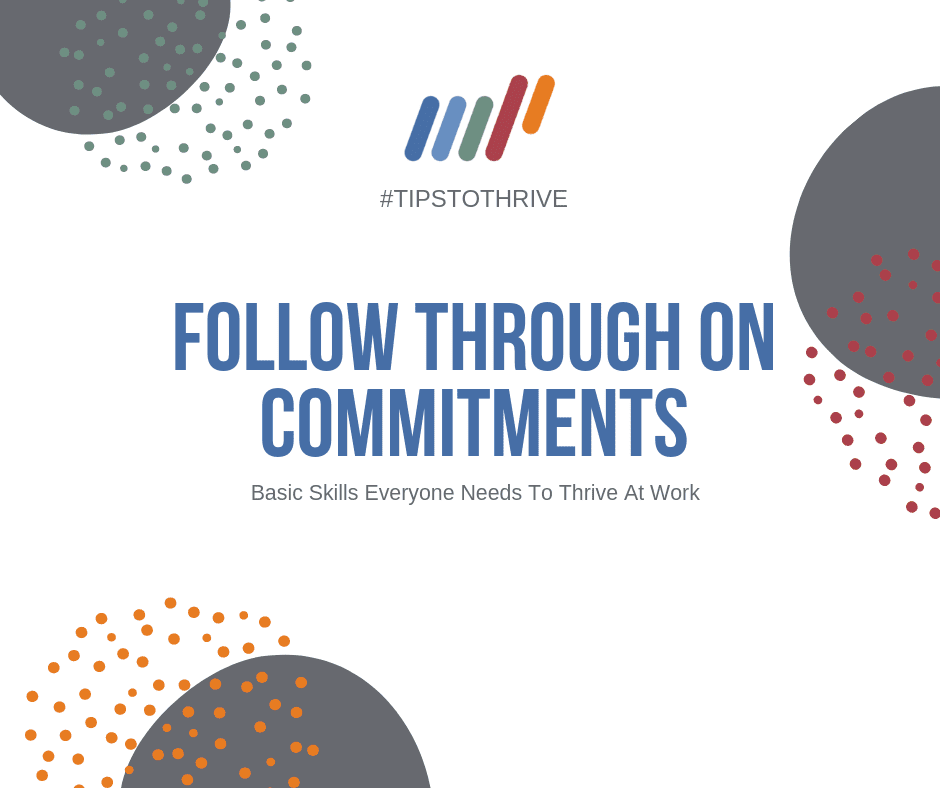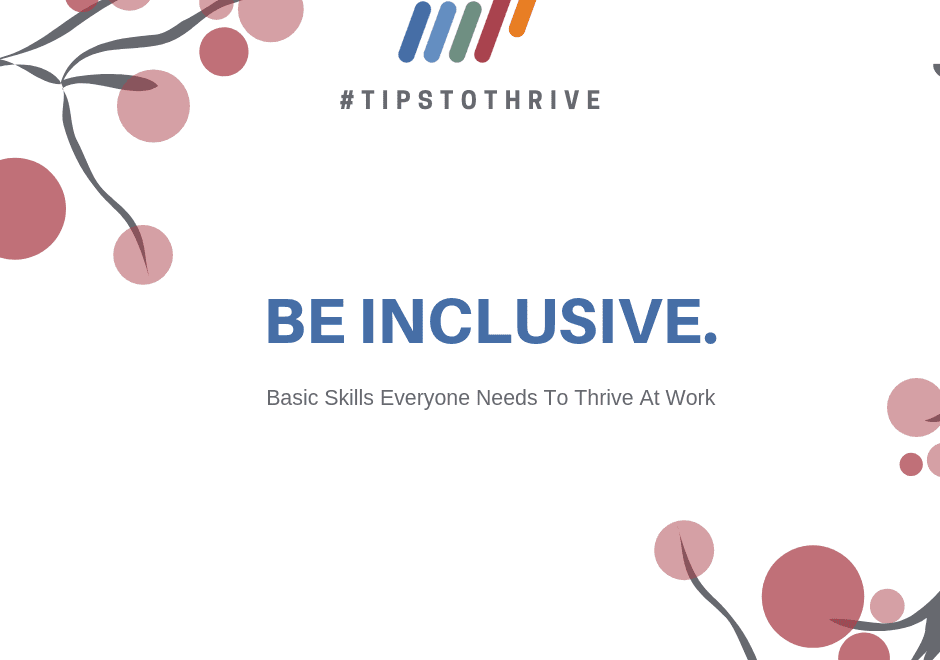Back to Basics: Communication in the Job Search
 Have you ever been in a situation where you’re trying to explain something, but the person you’re talking to just isn’t understanding your message? If so, you understand how frustrating miscommunication can be. Communication is arguably one of the most important soft skills, so it’s no surprise that when it comes to the job search, being able to share information in a clear and concise manner is crucial. Keep reading for some great tips on how to improve your communication with potential employers and enhance your job search success.
Have you ever been in a situation where you’re trying to explain something, but the person you’re talking to just isn’t understanding your message? If so, you understand how frustrating miscommunication can be. Communication is arguably one of the most important soft skills, so it’s no surprise that when it comes to the job search, being able to share information in a clear and concise manner is crucial. Keep reading for some great tips on how to improve your communication with potential employers and enhance your job search success.
Be an active listener.
Communication is a two-way street, so the key to success in any interaction is to not only communicate what you have to say, but also to be committed to hearing and understanding what the other person has to tell you. When you’re looking for work, the employer communicates with you in a number of ways, such as detailing what they’re looking for in their job advertisement, telling you more about their company, and asking for more information about you to uncover whether you’d be a good fit for their team. Listen carefully, provide honest responses, and if you don’t understand something, ask questions to clarify. This will ensure that you’re both on the same page from the very start, and will help you form a solid foundation for what will hopefully become a mutually beneficial employment partnership.
Communicate your value.
One of the most important aspects of communication during the job search is being able to clearly and accurately articulate what you’re looking for and what you bring to the table – mastering this skill will make all the difference in your ability to find (and get hired for) jobs best suited to your skills, experience, and career goals. Before you apply, carefully read through the job description, and make sure your application or resume reflects all the skills and experiences you have that are relevant to fulfilling the job requirements. If you’re contacted for a phone or in-person interview, do a little practice beforehand to get yourself comfortable with talking about your work history and how those experiences have prepared for you for success in this new role. Doing this consistently will increase your chances of success by helping you stand out amongst other applicants!
Be accessible.
The application process can only move forward if you maintain open lines of communication with potential employers – this means being accessible by providing accurate contact information, ensuring your voicemail is set up and able to receive messages, and responding to communications in a timely manner. All too often, employers receive applications that they are excited to follow up on, only to discover that the applicant’s phone number is out of service, or have their email returned as undeliverable. It’s a shame to miss out on a great employment opportunity due to such an easily avoidable error, so when you’re applying for work, take a moment to double check your information and ensure that interested employers have a reliable way to reach you.
Keep it professional.
Job seekers have more options to apply than ever before. In addition to tried & true methods like applying in person or via a job board, those seeking employment now find that they can apply to open positions via social media, or text companies to express their interest. This is a wonderful thing because it opens up a world of new possibilities for companies and job seekers alike, but it is very important to keep professionalism in mind now matter how you choose to apply. Most people have casual relationships with texting and social media, so it might feel natural to abbreviate words, skip punctuation, or use a more informal tone when communicating using those methods. However, whether you’re texting, calling, or messaging a company over Facebook, the person you’re speaking with is evaluating you for potential employment.
Your email address and the name you use on social media are best kept professional and relevant as well – something simple – preferably your real name – is perfect. Also keep in mind that unless you’ve made your profile private, all of its contents (including photos, memes, and posts from your friends) are visible to employers and may impact their perception of your professionalism. Think carefully about what you post publicly – if it’s highly controversial, not safe for work, or otherwise contains information that you wouldn’t want your supervisor to see, you may want to adjust your privacy settings accordingly.
Don’t overshare.
Another way to ensure that you communicate in a professional manner is to avoid oversharing. Providing too much personal or unrelated information can be distracting and even unprofessional in an interview or conversation with a possible employer, and has the potential to steer an otherwise great interview in a bad direction. While you do want to make a genuine connection with your interviewer, remember that there is a difference between building professional rapport and making a personal friend. If you find yourself sharing too much, bring the conversation back to the job and what you bring to the table – that way, you can keep your interviewer’s attention on what makes you a great fit for the job.
Be mindful of body language.
Communication isn’t just what you say, it’s how you say it. Your posture, eye contact, facial expressions, and overall attentiveness to the other person can speak volumes, so being mindful of these things in your professional interactions can help you make a great impression on employers. If you’re not sure how your body language comes across, ask a trusted friend to do a short ‘mock interview’ with you and provide honest feedback. Positive, appropriate body language – like sitting up straight, maintaining natural eye contact, not fidgeting with your phone or other objects, and avoiding eye rolling or other disrespectful gestures – will help you communicate that you are professional, respectful, interested in the job, and engaged in the hiring process.
Whether you are looking for a new job or your next great employee, Manpower is here to help.
Contact one of our staffing experts today!
 |
 |



 No matter what field of work you are in, or how far you have climbed the career ladder, one thing that every employer is looking for is effective communication skills. But what does that look like exactly? Well, communication as defined is the exchange of information – and while there is no way to bridge the entire subject (on which countless best-selling books have been written) here in one simple blog, we do want to break down the subject to discuss how communication factors into the world of work.
No matter what field of work you are in, or how far you have climbed the career ladder, one thing that every employer is looking for is effective communication skills. But what does that look like exactly? Well, communication as defined is the exchange of information – and while there is no way to bridge the entire subject (on which countless best-selling books have been written) here in one simple blog, we do want to break down the subject to discuss how communication factors into the world of work.

















 Can you be counted on? No, really… how confident are you that your employer or other members of your team would describe you as dependable? And what does that even mean? Dependability is the quality that lets people know that you will do what you said you would do, when you said you will do it, and you will do it to the best of your ability – each and every time. If you are dependable sometimes, then the real truth is that you are not fully dependable, because consistency is a vital component of dependability.
Can you be counted on? No, really… how confident are you that your employer or other members of your team would describe you as dependable? And what does that even mean? Dependability is the quality that lets people know that you will do what you said you would do, when you said you will do it, and you will do it to the best of your ability – each and every time. If you are dependable sometimes, then the real truth is that you are not fully dependable, because consistency is a vital component of dependability.

 Since so many of your waking hours are spent at work, it is natural that the workplace can start to resemble one giant family. When everyone adheres to set standards of appropriate workplace behavior and respectable social etiquette, your workplace family will feel like a Norman Rockwell painting. However, when team members engage in toxic behaviors – well, you will have a one-way ticket for arrival at dysfunction junction, and no one wants that.
Since so many of your waking hours are spent at work, it is natural that the workplace can start to resemble one giant family. When everyone adheres to set standards of appropriate workplace behavior and respectable social etiquette, your workplace family will feel like a Norman Rockwell painting. However, when team members engage in toxic behaviors – well, you will have a one-way ticket for arrival at dysfunction junction, and no one wants that.





